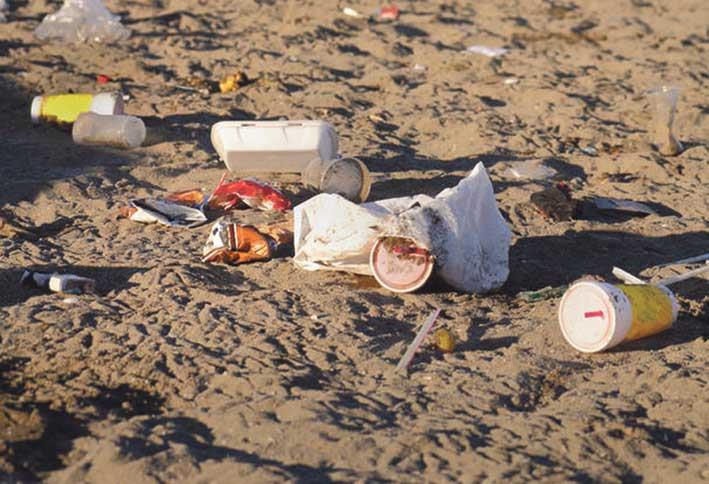A new scientific publication has showcased the usefulness of aerial drones in monitoring in a cost-effective manner extensive coastal stretches for the presence of beached litter. The publication, titled ‘Optimising beached litter monitoring protocols through aerial imagery’, was featured within the latest issue of the Marine Pollution Bulletin journal.
It is co-authored by Alan Deidun, Adam Gauci, both from the Department of Geosciences at the University of Malta, as well as by Serena Lagorio, is the outcome of Lagorio’s dissertation study within the full-time (one-year) Masters in Applied Oceanography offered by the same Department. This is the latest high-profile scientific publication to emerge from dissertation research studies offered to students within the same Masters course, following previous publications within the Journal of Coastal Research.

Within the study, three coastal stretches within the North-East Marine Protected Area (MPA) of Malta, situated at Bahar ic-Caghaq and at Qawra Point, were regularly monitored through replicated, geo-referenced drone flight transects, with captured images being imported as high-resolution orthophoto maps within Google Earth , through which density maps of the recorded litter could be constructed. The litter spotted within the drone photos was also quantified and classified as plastic, rope, wood, rubber or within the ‘other’ category, also after a concomitant ground truthing exercise. During the same study, the drone was flown at different heights and under different meteorological conditions with the aim of optimising an off-the-shelf protocol for flying drones for beached litter monitoring.
According to Deidun and Gauci, the novel application of the aerial drone technology presented in this study represents a cost-effective alternative to traditional, time-consuming monitoring of beached litter involving extensive human resources, besides assisting in the monitoring of difficult-to-access coastal stretches and in prioritising coastal areas for future clean-up activities. The study was made possible through funding made available by the Research Committee of the University of Malta. Online applications for next October’s Masters in Applied Oceanography recruitment can be accessed at: https://www.um.edu.mt/science/geosciences/physicaloceanography/msc